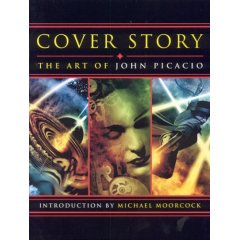Each year I say I'm going to read more non-fiction and I suppose this year wasn't too bad: I read 24 non-fiction titles, a bit more than usual for me. Several were genre-related, several were books on Christianity/spirituality, some history, some biography.
Here we go....

Blue Like Jazz (2003) is a book that's not afraid to say that Christians don't have all the answers and have flat-out screwed things up royally at times. My favorite part of the book occurs when Miller and some of his friends set up a confession booth on their secular college campus. One guy came in to confess and Miller and his friends said, "No, it doesn't work that way. We want to confess to you that as Christians, we've screwed up Christianity, misrepresented Christ, and treated large portions of humanity like crap starting with the Crusades all the way to today. And we're sorry." A great read.
I also discovered two books by Edward T. Welch this year,

Addictions: A Banquet in the Grave : Finding Hope in the Power of the Gospel (2001) and When People Are Big and God Is Small: Overcoming Peer Pressure, Codependency, and the Fear of Man (1997). Welch writes in a very practical, no-nonsense style that examines not only Scripture, but also psychology, philosophy and much more.

Although I enjoyed Manhunt: The 12-Day Chase for Lincoln's Killer by James L. Swanson (2006), I was enthralled by a book recommended by John,

1066: The Hidden History In The Bayeux Tapestry (2005) by Andrew Bridgeford. Manhunt reads like a good thriller, but it also reads like Swanson has done a lot of speculating. Still, a good read, but nothing like 1066. I knew little about the Bayeaux Tapestry and the era going in, but was fascinated by Bridgeford's account. It's certainly more scholarly (but no less entertaining) than the Swanson, with many references to early documents and professional findings. Sure, there's bound to be some speculation involved, but it's mixed with credible theories supported by credible findings.

I tend to gloss over most of the "current events" books, but I was intrigued by The World Is Flat: A Brief History of the Twenty-first Century (2005) by Thomas L. Friedman. I don't know that I agree with everything Friedman says about how our world is changing, becoming flatter, but every aspect of the book was at the least intriguing and often mind-blowing.
I really got into reading horror this year and two of the most useful reference books I ran across were Horror: The 100 Best Books (1988) by Stephen Jones and Kim Newman and the second installment that came out in 2005,

Horror: Another 100 Best Books (2005), also by Jones and Newman. For anyone who wants to discover the horror genre, these two books are invaluable.

I'm convinced that to become a good writer, you have to be a pretty good reader, something I'm slowly learning to become. Some of Francine Prose's Reading Like a Writer: A Guide for People Who Love Books and for Those Who Want to Write Them (2006) covers fundamental stuff, but it's stuff we all need to know. For someone like me who hasn't had a lot of formal training in writing (or even in reading/understanding/analyzing good writing), this book is a must-read.

Ever since I saw the cover of Jeffrey Ford's The Fantasy Writer's Assistant, I've been fascinated with the work of John Picacio, one of the most exciting artists in the field. His new collection Cover Story: The Art of John Picacio (2006) is outstanding in every way. Plus Picacio is one of the nicest guys you'll run across anywhere.
 Finally, the best biography I read this year was hands-down James Tiptree, Jr.: The Double Life of Alice B. Sheldon (2006) by Julie Phillips. From hunting trips to Africa as a child, to pulling the wool over the eyes of the entire science fiction community, to writing some of the most powerful genre stories ever written, Alice Sheldon's biography pulls no punches, giving readers a glimpse into the life of an amazing writer.
Finally, the best biography I read this year was hands-down James Tiptree, Jr.: The Double Life of Alice B. Sheldon (2006) by Julie Phillips. From hunting trips to Africa as a child, to pulling the wool over the eyes of the entire science fiction community, to writing some of the most powerful genre stories ever written, Alice Sheldon's biography pulls no punches, giving readers a glimpse into the life of an amazing writer. That's it for non-fiction. Next time: Young Adult
Today's Story = "Monster" – Kelly Link from Best New Fantasy, Sean Wallace, ed.
2 comments:
Yes, 1066 will make my best of '06 list, too. And I have Blue Like Jazz on my Christmas list.
I think Francine Prose's book is best taken in small doses. After a while, all of the excerpts start to bleed together. Best to give this book on close reading a close reading.
It took me quite awhile to get through the Francine Prose book as well. Eager to see your list.
Post a Comment